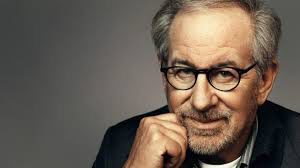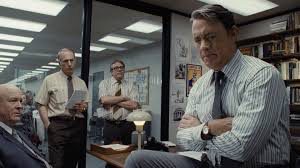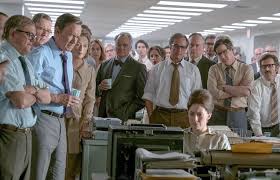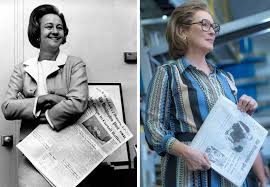


The term “fourth estate” was originally used by Thomas Carlyle in his book On Heroes and Hero Worship in 1841 which refers to the figure in the journalist gallery in Parliament. The figure is the fourth power even though it is not formalized in any political or administrative system.
This fourth power is derived from the traditional European concept of the three main powers; legislative, executive and judiciary. The position of journalists is shifted forward, not only as a reporter, but also observer of the government and benchmark of democracy.
If a politician needs to answer to Parliament (except parliamentary bias), a journalist needs to answer to the people about the politicians. Hence, to measure the democracy of a country, first, measure how much power do the journalists have.

For Malay version click here:
Preventing the people from getting information (truth) is against democracy. Besides, the definition of democracy is not to persuade people to the ballot box once every five years. A democracy is providing mental preparation before going to the ballot box with the correct information. As such the fourth power goal is to uphold and straighten the virtue and truth.
Denying the fourth power is denying the democracy. This is the message from Steven Spielberg in his latest film, The Post which opened the show in the country on March 8. The Post is another movie about journalists facing abuse by political power.
Before this, Citizen Kane (1941) directed by Orson Welles, is compulsory to all film major student, same goes to All the President’s Men (1984) directed by Alan J. Pakula. The Post is one of the best film the 21st century. The Post and All the President’s Men were lifted from the historical fragment of The Washington Post and became a part of the modern American history.
Despite citing the history of President Richard Nixon’s era around the 1960s, the issue of political power denies the fourth power in The Post is still relevant with the current situation. For example, President Donald Trump being prejudiced to the media, introduced the term “fake news”. The “fake news” syndrome is also spreading especially in countries whose leaders are ‘moral bankruptcy’. The truth about their disgrace is ‘fake news’.
I call upon all my journalist friends, please watch and “read” The Post. This is our world and we should uphold the fourth power. The Post has challenged the current journalists to borrow enthusiasm and credibility of journalists and editor The Washington Post four decades ago.
The Post proved that in many of opportunistic journalists , there are still a small number that retains their sublime principles and responsibilities. It also affirmed that journalists will not be honored as long as they do not respect the principle and ethics.
During the uprising in 1970’s , the people had lost their confidence to the newspaper, especially the two big and influential; The Washington Post and The New York Times. Both had lost their readers. But the confidence came back after The Washington Post exposed the Watergate scandal involving Nixon.
The Washington Post editor, Ben Bradlee is the hero in that extraordinary action. The Post focuses on Ben Bradlee while All The President’s Men, focus on two journalists – Carl Bernstein and Bob Woodward.
I have watched the film three times. There are several factors that make me obsessed with this movie. First, the fourth power description; second, the director Steven Spielberg; third, The Washington Post and fourth, it is related to President Richard Nixon.
Pentagon Paper
The real characters in The Washington Post timeline are manifested greatly by actors Tom Hank and Meryl Streep. Ben Bradlee’s character was brilliantly performed by Tom Hank. Meryl Streep successfully pulled off the newspaper publisher character, Katherine Graham who was initially naive but actually brave.
Katherine Graham is the only women influential newspaper publisher in the United States. She had to take on the responsibility as newspaper publisher after her husband died. This has been the Graham’s family business since the newspaper belongs to the family. The newspaper (print and digital) is now owned by the richest person, Joff Bezos who is also the Amazon.com owner.
In one of her biographies, Katherine Graham revealed about the pressure due to the pessimistic attitude she received when a woman is taking up the man’s job as a newspaper publisher. She was said not being able to make decisions that are not only accurate but also without risking the newspaper sale.
The Post picked one of the historical fragments of The Washington Post – completely disclosed the confidential Pentagon Paper. The effect was huge, the editor and publisher were sued by Nixon under the Espionage Act. Ben Bradlee and Katherine Graham did it for the fourth power. Katherine Graham firmly said, “If we are not responsible, who else?” This refers to whether or not to publish the exclusive news of Pentagon Paper.
I believe all the journalists agree with Spielberg who reiterates the idea of fourth power; to fend off political interference and influence on newspaper editorial offices. Nixon sued The New York Times who first disclosed the Pentagon Paper. The Washington Post was exposed to court offense for publishing the 4,000-page document as it was being discussed. The White House tried to intervene in editorial leadership but Ben Bradlee did not fade. He said, “We do not answer to the President, we answer to the people.”
Those who are skeptical that no media without political interference will say the West also has no freedom of the media. That’s right. But from one historical fragment, we can see there was a group of journalists trying to uphold that fourth power. They do. This is what The Post calls and this is what we should “read”.
The Pentagon Paper is a confidential government document revealing the facts hidden by four Presidents before Nixon on the aim of the attack on Vietnam. They were not only lied to the people but also to the Congressmen. The Washington Post tells the lies of the four Presidents to the people.
The documents titled, “United State – Vietnam Relations 1945 – 1967: A Study Prepared by the Department of Defense” was leaked by Daniel Ellsberg to The New York Times journalist. The document revealed the American invasion of Vietnam to help South Vietnam leader Ngo Dinh Diem in 1955. Then in 1963, the America also conspired to kill Dinh Diem. This is a political restructuring in Indochina by four American presidents.
This took place under the administration of President Harry S Truman in 1945, Dwight D Eisenhower, John F Kennedy, Lyndon B Johnson and finally Richard Nixon.
The most dramatic fragment in the film is the tension to decide whether or not to publish exclusive news about Pentagon Paper. The editor and publisher were facing a dilemma between the integrity of the journalist and survival of the company. This part is thrilling and tense. The visual by camera work is very impressive. The cinema verite technique adds to the audience tense.
That midnight, the time seems to be moving fast. The printer machine is ready. The print operators are just waiting for the word “run” from Ben Bradlee to press the green button. Deadline is getting closer, delayed press prints will cause newspaper to be distributed late.
Katherine Graham who was underestimated by some board of directors, had made great and bold decisions on that crucial night and that important moment ; it is to give permission to Ben Bradlee to publish the full report of Pentagon Paper. He is ready to confront the possibility of imprison or of shareholders and investors fleeing due to that unpopular action.
Spielberg is succeeded in giving a cinematic impression to a history fragment of his imperial space. The life in the editorial office of The Washington Post is dramatically created with wild and aggressive camera work. Preparation of prop to introduce the era enhance the mise en scene of this movie.
Almost half of the film is using cinema verite technique which is recording with a hand held camera to create a tense visual effect. Cinema verite is usually used in documentary film but in The Post it creates a point of view (POV shot) of the audience highlights the ever busy and frenetic editorial office. We are brought to the attention of editorial office who make important decisions for the people and the country.
Ku Seman yth. Sebahagian besar journalis.dulu TAK MAKAN DEDAK tapi.MENABUR.JASA. kan?